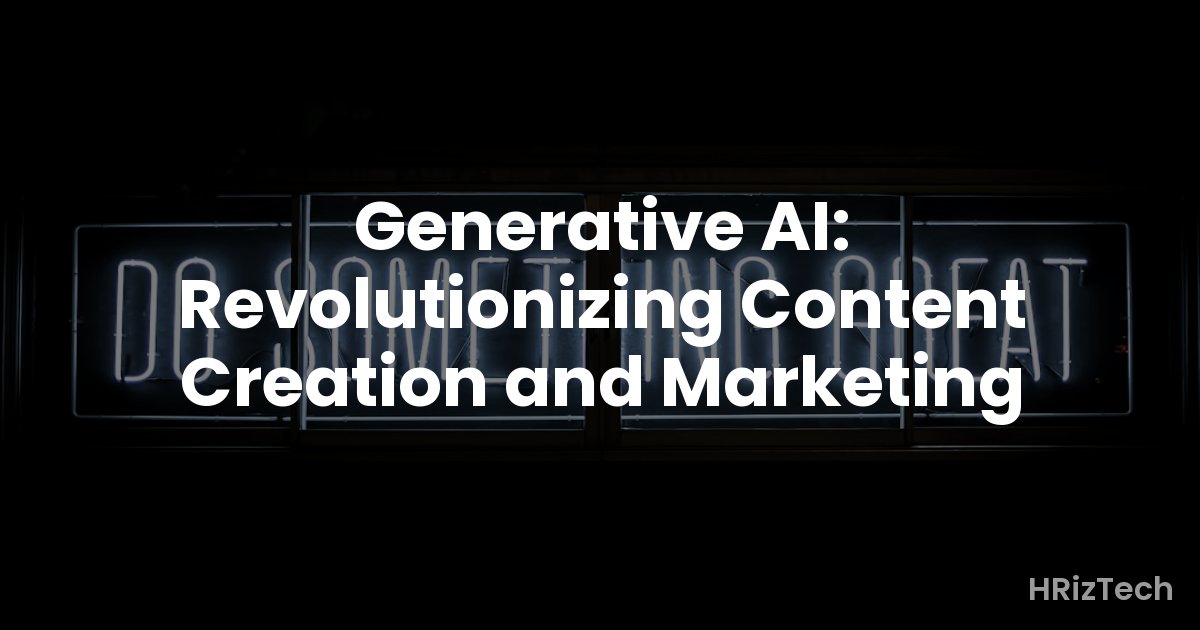Generative AI: Revolutionizing Content Creation and Marketing

Generative AI: Revolutionizing Content Creation and Marketing
- Generative AI significantly boosts content creation speed and efficiency.
- It enables marketers to personalize content at scale, leading to improved engagement.
- While offering incredible potential, ethical considerations and limitations must be addressed.
- Successful implementation requires a strategic approach and understanding of its capabilities.
- Generative AI tools are rapidly evolving, demanding continuous learning and adaptation.
What is Generative AI, and How Does it Work?
Generative AI, a subset of artificial intelligence, is all the rage. But what exactly *is* it? Simply put, it's AI that can create new content – text, images, audio, code, and more – rather than just analyzing existing data. Think of it as a supercharged creative assistant. It works by learning patterns and structures from massive datasets. Through techniques like deep learning and neural networks, it then uses this learned knowledge to generate novel outputs that resemble the training data but are not direct copies.
For marketers and content creators, this translates to a powerful tool capable of generating blog posts, social media captions, ad copy, email newsletters, scripts for videos, and even images and artwork. No longer are you limited by your own writing speed or creative block; generative AI can help overcome these hurdles and accelerate your content production pipeline.
The Impact on Content Creation
Increased Efficiency and Productivity
The most immediate benefit is the dramatic increase in efficiency. Tasks that previously took hours or even days can now be completed in minutes. Need a quick outline for a blog post? Generative AI can provide one. Need multiple variations of an ad copy? It can generate them in seconds. This allows content creators to focus on higher-level tasks like strategy, editing, and ensuring brand consistency.
Enhanced Creativity and Innovation
While some fear that AI will replace human creativity, the reality is quite different. Generative AI serves as a powerful tool to *augment* human creativity. It can provide fresh perspectives, suggest unexpected ideas, and help overcome creative blocks. Think of it as a brainstorming partner that never gets tired and always has new suggestions.
Personalized Content at Scale
Personalization is key in today's marketing landscape. Generative AI allows businesses to personalize content at scale, creating tailored experiences for individual customers. Imagine generating unique email messages for each subscriber, or crafting personalized product descriptions based on customer preferences. This level of personalization was previously impossible without massive manual effort.
Challenges and Ethical Considerations
Accuracy and Fact-Checking
One crucial caveat is the need for rigorous fact-checking. Generative AI models can sometimes generate inaccurate or nonsensical information, also known as "hallucinations." It's essential to treat the output as a first draft that requires careful review and verification by a human.
Bias and Fairness
Generative AI models are trained on existing data, and if that data reflects societal biases, the AI will likely perpetuate those biases in its output. It’s crucial to be aware of this potential issue and to use tools that address and mitigate bias whenever possible.
Copyright and Intellectual Property
The legal landscape surrounding the copyright of AI-generated content is still evolving. It's essential to understand the implications for your business and to use generative AI responsibly, respecting intellectual property rights.
Implementing Generative AI in Your Marketing Strategy
Identify Your Needs
Before diving in, assess your specific needs and goals. What content creation challenges are you facing? Which areas could benefit most from generative AI assistance? Clearly defining your objectives will guide your selection of tools and strategies.
Choose the Right Tools
The market for generative AI tools is rapidly expanding. Research and select tools that align with your budget, technical capabilities, and specific content needs. Consider factors like ease of use, integration with existing workflows, and the quality of output.
Develop a Workflow
Integrate generative AI into your existing content creation workflow seamlessly. Define clear roles and responsibilities, establish quality control measures, and ensure that the AI tools are used to enhance, not replace, human creativity and judgment.
The Future of Generative AI in Marketing
Generative AI is not just a fleeting trend; it's transforming the content creation and marketing landscape. As the technology continues to evolve, we can expect even more sophisticated tools and applications. The ability to create highly personalized, engaging content at scale will become increasingly crucial for businesses seeking to stand out in a competitive market. Continuous learning and adaptation will be key to successfully leveraging the potential of generative AI.
Key Takeaways
Generative AI presents immense opportunities for content creators and marketers. It accelerates content production, enhances creativity, and allows for personalized experiences at scale. However, ethical considerations and accuracy must be prioritized. Strategic implementation is vital for realizing the full potential of this transformative technology.
So, what are your thoughts on the ethical considerations surrounding the use of generative AI in marketing? Share your perspectives in the comments below!
Comments
No comments yet. Be the first to comment!